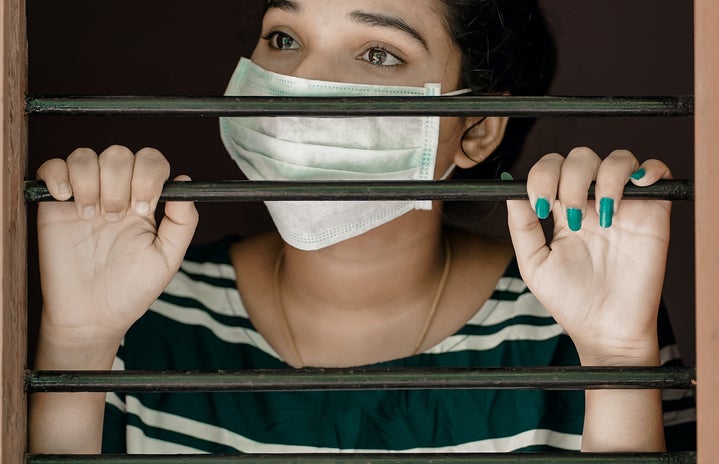A few months ago, at the start of the U.S. lockdown, I wrote an article asking people to not be individualistic and stay home. I stayed home and did not see any friends for all of March and April. However, by May, I realized how negatively the lockdowns were affecting mental health, small businesses and people’s livelihood. It got me thinking, are lockdowns worth it? Are they a sustainable solution for us?
And before you say, “Listen to the experts,” it turns out that the experts are divided on this issue.
Once I realized I was a lockdown skeptic, I kept it to myself because it seemed like an unpopular opinion. However, I realized I shouldn’t fear having discussions with others just because they might disagree with me. After all, this is an important discussion to be had. Lockdowns and the coronavirus are both simultaneously hurting us, yet I believe the media and officials only focus on the latter.
I take coronavirus seriously, I know it is real and I know people who have become severely ill with it. My goal here isn’t to discuss coronavirus, but rather public policy. I believe lockdowns do more harm than good, and we should not implement them again.
The first alarming issue we immediately saw with lockdowns was domestic abuse statistics. Since March, women have been stuck at home with their abusers. Not only is this a danger to their mental health, but it’s also a matter of life or death.
To no surprise, we’ve also seen a huge decline in people’s mental health. Numerous studies have now shown just how much the past few months have taken a toll on us. Mental health declining is not solely because of lockdowns, but it certainly plays a large role. One study saw levels of depression and anxiety decreasing as lockdown restrictions were loosened. This makes sense considering many of us were socially isolated during lockdowns. Many people have also lost their jobs because of lockdowns, and this has caused severe stress, understandably so.
Most notably, hunger and poverty have risen. 40 million children globally could live in poverty, resulting from the halt in production and lockdowns. In many countries, it’s not a matter of saving the economy vs. saving lives from COVID-19 (as we often hear on Twitter). It’s a matter of saving lives from COVID-19 or saving lives from hunger and poverty.

And every time a country has loosened restrictions, they usually see a surge in cases. Germany, South Korea, and Spain are just some examples. Even New Zealand, the country that eradicated COVID-19, is seeing a resurgence. This has caused New Zealand and parts of Australia to lock down again. But certainly, that can’t be sustainable, right?
So, my question is, what is the endpoint here? Are we just going to keep locking down every time there is an outbreak?
It is way too late to eradicate COVID-19, any scientist can tell you this. So, that right there is off the table. We could keep COVID-19 to low levels, but that also means permanent job loss and losing life as we know it. Maybe you’ll say, “When we have a vaccine then we can go back to normal.” Okay, but a vaccine isn’t guaranteed. And even if it is, it will take months to distribute it to citizens. So, what is the answer to this madness?
Luckily, I believe one country is setting an example for the rest of us: Sweden. While Sweden did encourage social distancing and banned gatherings of over fifty people, Sweden never locked down. The media were constantly criticizing Sweden, and yet now, their curve peaked and deaths have flattened. Some may say, “Well yeah, Sweden’s deaths have now flattened, but they have a higher death rate than other Nordic countries.” And while that is true, their death rate is still lower than many countries that did have a lockdown.
Instead of shutting down their entire economy, they let the virus run its course while still promoting health hygiene and social distancing to an extent. The key difference between Sweden and the rest of the world is that Sweden considered the long-term implications of locking down, while many other countries didn’t (and still haven’t). Lockdowns might save more lives in the short-term, but they will damage more in the long-term.
Hopefully soon, society can have an open dialogue about the long-term implications of lockdowns, something I truly believe most government officials have not considered.
Want to see more HCFSU? Be sure to like us on Facebook and follow us on Instagram, Twitter and Pinterest!



